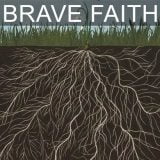Science and the Bible Go Together

They really do.
Since I read this stat I’ve been on a hopeful hunt to learn how true this is.
More than one third of engaged Christians teens (37%) and more than half of churchgoing teens (53%) say that the church seems to reject much of what science tells us about the world. —Barna Group
This stat jarred me because we have a lot of graduated teens leaving the church. And why not if science (what they tend to know better) doesn’t line up with the Bible. For some this has become an either/or choice and one choice that makes a whole lot more sense. Because they tend to have more hours in science than they do with the Bible. And if they do get good solid Bible teaching that teaching hasn’t addressed these science issues. Or the wonders that science is discovering that points back to God.
So I’ve been on the hopeful hunt to fix this glaring problem. Now I’ve got a file of resources I can use. From that hunt this one line keeps stirring in me:
Biologist Jeff Hardin refers to the practice of science as an “act of worship.”
That is bringing science and the Bible together! That is from a real scientist.
That quote moves me to want to know more.
My favorite resource I found is a weekly email from Drew Rick-Miller. He is with Science for the Church. Honestly I do not have a scientific mind. I see the content on this site and I’m immediately overwhelmed. Most of the stuff I’ve collected is over my head but I believe those with stronger scientific minds than mine will click with it. And I believe I have more scientific minds in my church family to teach this better to the teens.
I know the teens in my church need to know this stuff. For too long we’ve kept the science and the Bible separate.
So science is an act of worship? I’m including this email from September 10, 2019, from Drew Rick-Miller which contained that quote and was full of scientific thought that even I could understand.
Let Us Worship God
I still don’t quite know what to make of texts like Psalm 148:
“Praise the Lord! … Praise him, sun and moon; praise him, all you shining stars! … Praise the Lord … you sea monsters and all deeps, fire and hail, snow and frost … Mountains and all hills, fruit trees and cedars! Wild animals and all cattle, creeping things and flying birds!”
I get that God is worthy of praise, from all of creation, on earth and in the heavens. But do moons really praise God? Or stars, or fire, or snow, or mountains? Maybe wild animals and creeping things, but trees?
Of course, there is a sense in which all things glorify God simply by being what they were made to be—maintaining their orbits, obeying the water cycle or, in our case, humans worshipping God. But as worthy as God is of creation’s praises, I still find it odd to think of an atom or cell worshipping God.
I agree with the Psalms: All creation shows the glory of God. And I agree that science helps us see that glory, and in learning about stars or wild animals, I am moved to worship.
But I still have trouble wrapping my head around proteins or black holes—or even stones, as Jesus said—praising God. There is something about intent and agency in the act of praise that I simply don’t see in inanimate objects, or even simple forms of life. Maybe I’ve spent too many years drinking from the well of science.
What I do know is that the scientists who study all of those things in Creation often describe their work as spiritual. For scientists who are Christian, they will go a step further and call it an act of worship.
Science as Worship
Francis Collins famously said, “The God of the Bible is also the God of the genome. God can be found in the cathedral or in the laboratory. By investigating God’s majestic and awesome creation, science can actually be a means of worship.”
Most scientists I have met who are Christian resonate with this experience. They see God through their microscopes and telescopes. They see God in studying planetary motion and animal behavior. They see God in their elegant equations. They see God in the beauty of creation and the awe it inspires.
They also see God in those moments of profound insight—when they have been privileged to learn something new about God’s creation. For this reason, biologist Jeff Hardin refers to the practice of science as an “act of worship.”
And he is not alone. Here is a nice summary of the sensibility I’m trying to convey.
“I think that when you consider the beauty of the world and you wonder how it came to be what it is, you are naturally overwhelmed with a feeling of awe, a feeling of admiration and you almost feel a desire to worship something. I feel this, I recognise that other scientists such as Carl Sagan feel this, Einstein felt it. We, all of us, share a kind of religious reverence for the beauties of the universe, for the complexity of life. For the sheer magnitude of the cosmos, the sheer magnitude of geological time. And it’s tempting to translate that feeling of awe and worship into a desire to worship some particular thing, a person, an agent. You want to attribute it to a maker, to a creator.”
Can you guess who said that? None other than Richard Dawkins, in his 2007 debate with John Lennox. Of course, he concludes by saying, “What science has now achieved is an emancipation from that impulse to attribute these things to a creator.” But before that, he echoes a sentiment I have heard from so many scientists of faith. Doing science can be an act of worship.
Science in Worship
Scientists may see science as an act of worship, but do our ministries encourage that connection? Do we ever engage science in worship? Do images and our understandings of the natural world help us to praise the Lord as the Psalmist instructs?
My hunch is that, at least in our normal worship services, science has next to nothing to do with our praise. We stick with forms of liturgy and music and prayer that focus on biblical revelation with limited (or perhaps outdated) reference to God’s other book, that of nature. And in a different age, that might have been okay.
But we live in a culture saturated by science and technology. It’s an age where science is being used again and again as justification for leaving faith—or never even trying it out. Science was recently mentioned as a reason for a prominent Hillsong leader’s departure from faith. Today, many thoughtful individuals, some of them scientists, either are asked to check their brains at the church door or feel unwelcome altogether in our ministries.
How do we change that? How can we invite them to engage science—to experience that feeling of awe and admiration that even a diehard atheist like Richard Dawkins can see—and to rightly reorient it as worship? In other words, how can we make science an instrument of worship?
I would like to hear your ideas. Reply to this email or visit us on Facebook and offer comments. What things have you done in your ministry? Did they work? What might you like to try? What music and prayers, liturgies and visuals have you used? And what would you need in order to make science an instrument of worship?
Let’s keep this discussion going, because it’s an important one. Cheers, Drew
Do you see? Do you feel the awe? Tell your teen of this awe. How scientists are awed. How science will draw them into a deeper and truer relationship with God.
Read this amazing research science to confirm this. God knows, evangelicals are more science-friendly than you think
(photo credit: Rakicevic Nenad, Pexels.com)





